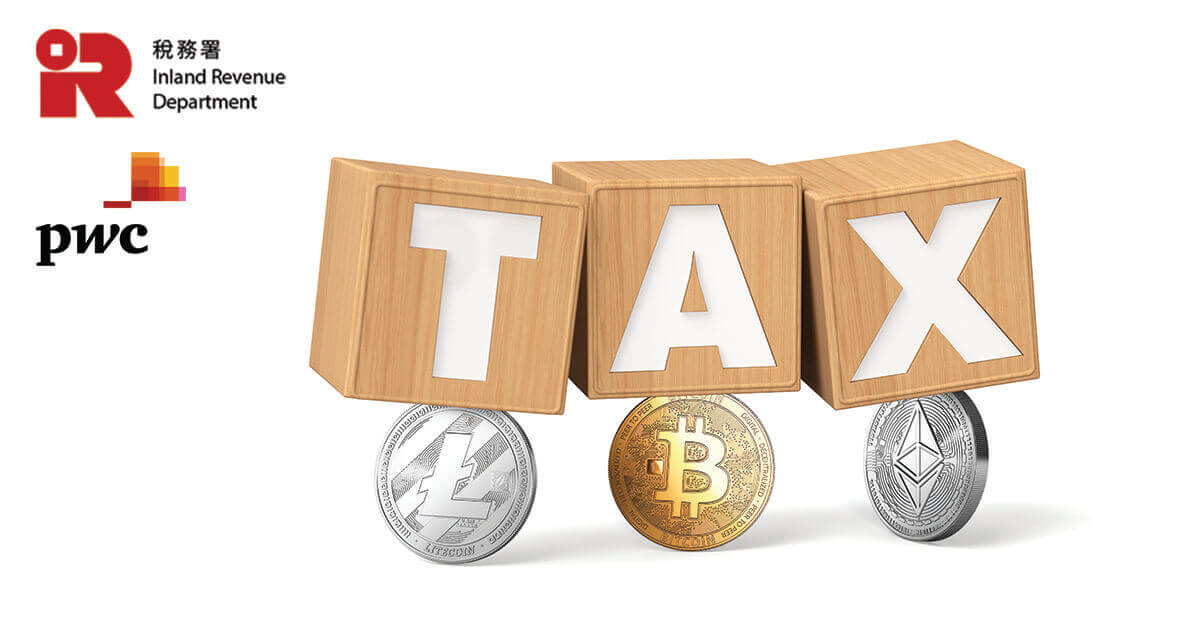PwC Expert's Take: What Are the 3 Grey Areas to Crypto Taxation in Hong Kong?
The Inland Revenue Department (IRD) of Hong Kong took a step further to provide clarity in taxing digital assets. In the recent press release titled “LCQ20: Regulation of virtual asset investment activities”, James Lau, the Secretary for Financial Services and the Treasury answered the queries raised by the Hon Wu Chi-wai on taxation of virtual assets, tax evasion of virtual asset-related business and latest effort to regulate virtual assets by the Hong Kong Securities and Futures Commission (SFC).


The Inland Revenue Department (IRD) of Hong Kong took a step further to provide clarity in taxing digital assets. In the recent press release titled “LCQ20: Regulation of virtual asset investment activities”, James Lau, the Secretary for Financial Services and the Treasury answered the queries raised by the Hon Wu Chi-wai on taxation of virtual assets, tax evasion of virtual asset-related business and latest effort to regulate virtual assets by the Hong Kong Securities and Futures Commission (SFC).
In the press release, Wu questioned whether business operators are required to pay taxes for transactions conducted using virtual currencies. With reference to the Inland Revenue Ordinance (IRO), except for profits from the sale of capital assets, the profits tax is applicable to any profits arising in or derived from trading and business activities carried on in Hong Kong. Lau stressed that the provisions regarding profits tax in the IRO and the relevant case law also applies to virtual assets transactions. The IRD has revised its Departmental Interpretation and Practice Notes (DIPN) No.39 last month and elaborated that the profits from trading, exchange and mining of cryptocurrencies are chargeable to profits tax. The amount of sales and purchases is reflected by the market value of cryptocurrency accrued at the date of the transaction.
The existing rules under IRO also apply to tax evasion of virtual asset transactions. To enhance IRD’s capability in detecting tax avoidance and evasion, the IRD will seek relevant information from other tax authorities through the exchange of information mechanisms under tax treaties.
Further to the regulation imposed by the SFC in November last year, the SFC and the Financial Services and the Treasury Bureau (FSTB) are closely monitoring the need to regulate the virtual assets trading platform (VATP). The SFC is currently discussing with some VATP operators and will determine how to regulate VATP after the exploratory stage.
Hong Kong’s Framework to Classify Digital Tokens
In the revised DIPN, the IRD classified digital tokens into three categories:
1) Payment Tokens
Payment tokens are regarded as virtual commodities but they are not legal tender in Hong Kong. They are used as a means of payment of goods and services but they don’t provide holders any right or access to goods. Bitcoin is a prominent example of payment tokens.
2) Security Tokens
Security tokens represent ownership interests in the business and debt due to the business. Holders of security tokens are entitled to a share of profits in the business.
3) Utility Tokens
Utility tokens provide the holder with access to particular goods or services typically provided by the blockchain platform. The token issuer commits to accept the tokens as payment for particular goods or services.
Grey Areas Remain for HK Crypto Taxation
A lot of regulatory clarity has been observed in cryptocurrencies for the last two years, with only 5% of regulators worldwide who do not have a team working on cryptocurrencies. This is not the case with tax authorities, and Henri Arslanian, PwC Global Crypto Leader explained that regulating cryptocurrency taxation can be challenging as the project teams have decentralized operations, which creates transfer pricing and other tax issues to be addressed.
In Hong Kong, while the latest revision of DIPN provided further clarity to regulate the taxation of virtual assets, PwC recently published the report titled “Hong Kong IRD issues guidance on cryptocurrency taxation” to highlight three grey areas where the HKIRD needs to address in the future.
1) Treatment of unrealized gains/losses
The IRD has not decided on the treatment of fair value gains and losses that may arise from the year-end revaluation of digital assets used to carry on a cryptocurrency business. PwC believes that the treatment should depend on the nature of digital assets: capital or revenue.
If the digital assets are revenue in nature, the principles in the Nice Cheer Case should be followed which the Court of Final Appeal established that unrealized gains from the increase in the value of a trading stock should be taxed at the time of realization. However, the provisions under the Inland Revenue (Amendment) (No. 2) Ordinance 2019 can serve as the exception which allows taxpayers to elect to be taxed on a fair value basis of financial instruments accounted in accordance with Hong Kong Financial Reporting Standard (HKFRS) 9/International Financial Reporting Standard (IFRS) 9. However, the IRD may consider providing a concession or making legislative changes since some digital assets may fall outside the scope of HKFRS 9 and IFRS 9.
Gwenda Ho, PwC Tax Partner spoke exclusively to Blockchain.News, "To the extent that these unrealized gains/losses are revenue in nature, the uncertainty is whether these should be taxable/deductible at the time of recognition in the profit and loss account, or on a realization basis. The issue is complicated by recent case law and legislative changes in relation to financial instruments. Although this is a timing issue, it may create an administrative burden."
2) Profits tax exemption for qualifying investment funds
The Unified Fund Exemption regime enacted in 2019 provides that all privately offered onshore and offshore investment funds operating in Hong Kong, can enjoy profits tax exemption for transactions of qualifying assets. The current qualifying assets exclude digital assets.
The SFC has published a circular to regulate crypto fund managers in November 2018. PwC suggested the government to consider the extension of crypto investment funds as part of the qualifying assets in the Unified Fund Exemption regime.
Ho explained on the availability of profits tax exemption, "As digital assets that are not securities would not be qualifying assets under the unified fund exemption regime, crypto funds investing in such digital assets may not be able to enjoy the tax exemption. Hong Kong may risk seeing such businesses move to other jurisdictions if the regime cannot be extended to cover crypto investment funds."
3) Potential adverse tax implications with crypto borrowing and lending
In the DIPN No.42, the IRD assesses financial instruments by first deciding its nature according to its legal form rather than the accounting treatment or the underlying economic characteristics. The determination of the legal form of a financial instrument will examine the legal rights and obligations created by the instrument.
A crypto transaction may lead to a change in legal title, thus there is a risk that the instrument would be regarded as a disposal by the lender and acquisition by the borrower of the coin, and the realized gain or losses could be included as the lender’s taxable profits.
As the current relief may not be applicable to crypto borrowing and lending transactions, PwC suggested the IRD to consider extending the relief to cover crypto transactions. Ho elaborated, "Given that a crypto lending transaction may constitute a change in legal title, there is a risk that it would be regarded as a disposal by the lender and acquisition by the borrower of the coin, in which case the realized gain/loss could be included as the lender’s taxable profits. Provisions in the current tax law that provide relief for securities borrowing and lending transactions may not be applicable to crypto borrowing and lending transactions."
Complexity to tax cryptocurrencies
The complexity to handle the taxation of cryptocurrencies is beyond the current framework laid by the IRD, which Arslanian advised to cryptocurrency startups, “The biggest piece of advice I would give to any crypto company around the world is that you should make sure to consider the impact of accounting and tax before you start because, in addition to avoiding future headaches, there could be benefits and tax savings in properly structuring beforehand.”
PwC also raised more scenarios to illustrate the potential complexity in taxing cryptocurrencies, for example, the source of profits arising from cryptocurrency mining in proof of work vs. proof of stake models; Management of permanent establishment risks; whether the transfer of digital assets to give rise in stamp duty. These issues can be interesting for regulators to consider in the future.
Image source: Shutterstock


.jpg)
